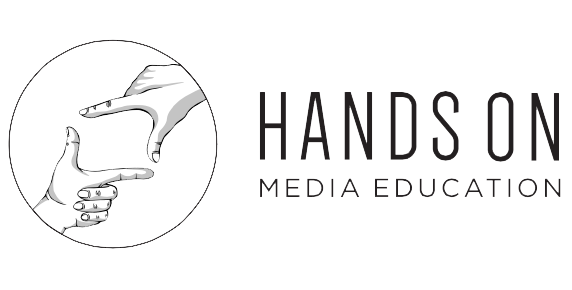I BELONG Project: Creating Digital Stories as a Reflection on Belonging in Quebec
As someone who is admittedly obsessed with Media Literacy, you can imagine that Media Literacy Week is kind of a big deal for me. As the Founder and Director of Hands On Media Education, I teach students and educators how to use tech and online tools to learn critical Digital Literacy and Digital Citizenship skills through creation-based workshops across Canada.
Which is why I was so honored to be invited by LEARN to develop and deliver a 6-week Digital Storytelling Workshop Series for 30 classrooms (almost 700 students!) across Quebec as part of the brand new “I Belong Project” which begins TODAY, day 1 of Media Literacy Week in Canada and the US.
Participating schools are members of the Community Learning Centre Initiative, and funding is from the Secretariat for Relations with English Speaking Quebecers (SRESQ) for the development of "Com-Unity Projects", tied to the theme of belonging in Quebec society.
Workshop Series Overview
Week 1 will begin with asking students to consider what “community” and “belonging” mean to them: What types of communities do they belong to, (family, friend group, school, work place, neighbourhood, town or city, sports team or club) and what is their relationship with these communities? I want to hear how belonging to different groups feels to them. Perhaps some feel excluded from a specific community -- I want to hear their thoughts on this as well. I am also interested in hearing ways they can include others into their community -- What is one thing we can say or do to invite someone into a group when we notice someone is an outsider?
Once they have a clear idea of what they would like to say, students will complete a Storyboard Template, where they will organize their thoughts into a script and image lay-out.
In Week 2 we get into Photography Composition, as this project does have images as one of its main components. I ask students to practice taking photographs while considering light, angle to subject, distance to subject and rule of thirds.
Week 3 is all about learning how to properly record our voices using phones, an audio recorder, tablet or computer. We then learn the importance of music in our Digital Story, and think about recording some of our own (!!) or finding royalty-free & copyright-free music online.
Weeks 4 & 5 are all about Video Editing using free, easy-to-use software for both Mac and PC. Students will learn how to weave their images, voice, music and text together into the final Digital Story project they are proud of.
Our workshop series ends Week 6 with individual group screenings happening across Quebec, where students are celebrated by their peers and teachers in a presentation of their hard work and important perspectives. We will also be potentially sharing their projects online, for other Quebecers and Canadians to learn from.
Format
To reach as many students and teachers as possible, while staying safe during these COVID times, I am delivering this workshop series remotely: providing a video, activity templates and any additional resources each week, plus I meet with each class live on Zoom each week for an interactive Q & A. Teachers are strongly encouraged to create their own Digital Stories alongside the students, providing hands-on professional development opportunities while showing their students how committed they are to Digital Literacy learning and engagement.
In my opinion, this Workshop Series is a perfect Digital Literacy opportunity: We are providing both students and teachers an opportunity to open-up about their important lived experiences with community, while learning critical Media & Digital Literacy skills to thrive in the on- and offline world.
Please reach out if you are interested in offering a similar experience with your students, and I encourage you to learn what other Media Literacy week events are taking place next week by visiting MediaSmarts and NAMLE.



